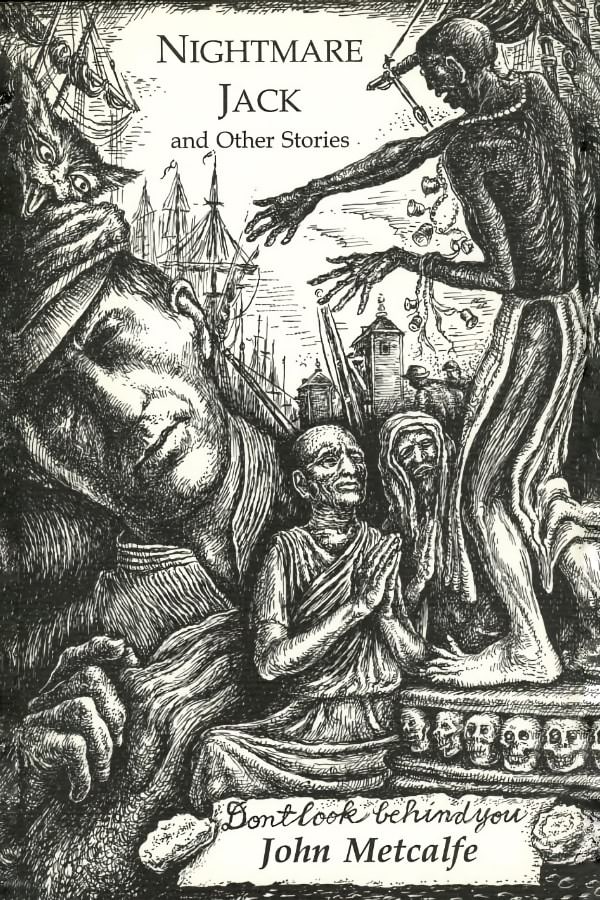Nightmare Jack and Other Stories

Written by John Metcalfe
Dust Jacket illustration by Douglas Walters
Limited to 500 copies
ISBN: 1-899562-51-6; xxi + 243pp; Hardcover; Published July 24, 1998
Original Price: C$52.00 / US$39.50 / £24.50
Writing about John Metcalfe in The Penguin Encyclopaedia of Horror and the Supernatural, T.E.D. Klein said that the author's work is marked by 'a rare artistry, wit, and intelligence—and by a restraint too often lacking in the genre'. Mike Ashley, in Who's Who in Horror and Fantasy Fiction, calls Metcalfe's works 'skilful and bizarre', while E.F. Bleiler, in his The Guide to Supernatural Fiction, refers to them as 'tense, cryptic stories of brooding supernaturalism' which are now 'unjustly forgotten'.
John Metcalfe's tales of the macabre and the supernatural are amongst the finest in the genre, and are comparable to the stories of such authors as Walter de la Mare, L.P. Hartley, and Robert Aickman. The horrors in his stories are insidious and unnerving, frightening by stealth rather than by violence as they intrude into the quiet lives of ordinary people, who find their worlds shaken by forces they can neither understand nor control. Like the best horror tales of Poe and Le Fanu, Metcalfe's narratives are often disturbing accounts of excursions into the 'bad lands' of the subconscious mind.
In The St James Guide to Horror, Ghost and Gothic Writers, Brian Stableford wrote: 'The neglect into which Metcalfe's work has fallen is very unfortunate; an excellent eclectic collection could be compiled by combining The Feasting Dead with the cream of his short fiction, and it is high time that some such project was attempted.' Nightmare Jack and Other Tales does just that. Seventeen of Metcalfe's finest supernatural and macabre works form this splendid collection: from the delicate ambiguity of 'The Double Admiral', 'The Bad Lands', and 'Brenner's Boy', through the nightmare of 'Mortmain' and 'Beyondaril', to his masterpiece of sustained horror, 'The Feasting Dead'.
Nightmare Jack and Other Tales is edited and introduced by Richard Dalby, who provides an extensive biography of Metcalfe and a summary of his work. The volume also features an afterword by Alexis Lykiard, who calls John Metcalfe 'one of the literary missing. Almost, but not exactly a ghost . . .'
Contents:
- Introduction by Richard Dalby
- Nightmare Jack
- The Double Admiral
- The Smoking Leg
- The Grey House
- The Tunnel
- The Bad Lands
- Mr Meldrum's Mania
- Time-Fust
- Mortmain
- Funeral March of a Marionette
- Brenner's Boy
- Not There
- "Beyondaril"
- The Firing-Chamber
- The Renegade
- The Childish Thing
- The Feasting Dead
- Afterword: A Forgotten Man by Alexis Lykiard
